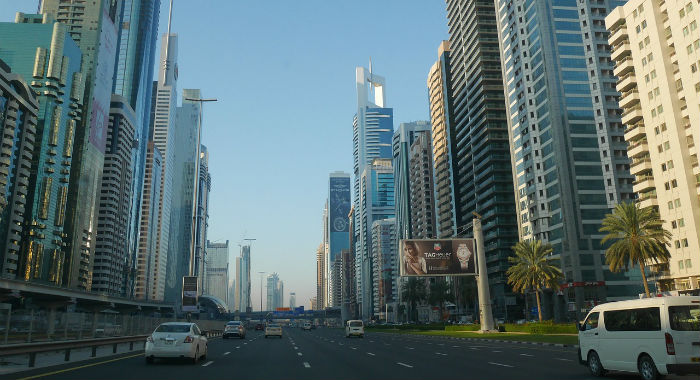Moving is tough but moving to a dynamic and fast-paced city like Dubai in another country with a different culture can be especially hard.
There are some challenges you should prepare yourself to face – having all the necessary information is already half the battle won.
1. Culture Shock
First of all, expats moving from Western countries are in for a culture shock. Having said that, however, it is not difficult to adjust to living there. The majority of the UAE’s population is Muslim and that the country operates according to Islamic traditions. This means expats would do well to familiarise themselves with local customs and expected behaviour.
Non-Muslims are not expected to follow the religion’s rules, but they are expected to respect it.
This includes being respectful in terms of dress and alcohol consumption. You should also know that unmarried couples are forbidden by law to live together in the UAE, and adultery and homosexuality are also illegal.
2. The heat
There is very little that can prepare one for the sheer heat of a Dubai summer. After all, living in Dubai means living in the desert. Burning eyes, constant sweating, dry throat, and headaches are just some of the symptoms you can expect when trying to get accustomed to the new climate.
For couples with children this can be a huge problem as kids will be required to spend most of their time indoors where there is air conditioning.
In Dubai Summer runs from June to September and this is the hottest time of the year when temperatures soar to almost unbearable levels. Many expats choose to take holidays during these months and visit their home countries.
3. Driving/Transportation
The International Driving Authority describes road conditions in Dubai as among “the best in the world” but adds that the city might be difficult to navigate.
“Driving in Dubai for tourists can be tough. You should take into account the driving habits of the locals. Nobody will give way to foreigners or help them in difficult circumstances. Thus, be very attentive and always keep an eye on the road,” the website states.
You should be prepared that “defensive driving” might be needed when navigating the city’s streets. This means always be aware and alert and ready to respond to aggressive or erratic behaviour from other road users. However, be wary of being aggressive yourself in your driving as this can attract fines.

Another thing which you will have to be prepared for when you start living in the UAE is the need for a car. Though other modes of transportation are available such as taxis and ride-hailing services such as Uber and Careem, often these can prove to be expensive especially if your residence is far from your workplace.
British people are normally accustomed to using public transport such as the subway. Although Dubai has a modern and well-run train subway system, many residential areas are not connected to it, and the most appropriate method of transportation is often by car.
4. Accommodation
Annual rents on most apartments in Dubai, unlike what you are most likely used to, must be paid upfront and in full. While some companies pay this for employees, it can make finding a new place to live tricky. You should also note that you must hire a real estate agent: a rental agreement cannot be concluded without an agent.
However, due to a recent downturn in the economy, many landlords are easing up on this requirement and different agreements can now be reached such as paying three months upfront and giving post-dated cheques for the rest of the year.
On the other hand, there are consequences for breaking a rental contract. In most cases, both landlord and tenant are protected and bodies like the Real Estate Regulatory Agency have been set up to deal with disputes.
5. Cost of Living
The cost of living in Dubai is relatively high, so this is something you should budget before moving here. However, the general cost of living has been steadily decreasing in recent years.
Living costs in the city had been high until the economic downturn of 2008 but since then it has been getting steadily cheaper to live in Dubai with the government holding down the price of everyday commodities and a stronger US dollar helping to make life less costly for expats.
According to data from the Economist Intelligence Unit, the cost of living in Dubai ranked 96th out of 131 cities in 2013. In 2003 it was ranked in the top sixty most expensive cities to live in the world. Real-time data gathered by Numbeo puts Dubai at about 20% lower than London in terms of cost of living – which is good news for a British expat in Dubai.
6. Bureaucracy
Expats should be warned that moving to Dubai can become a bureaucratic headache due to the licenses and permits needed for many things. Permits are required to buy alcohol, to get a driving licence, to get a job and you’ll even need a permit to simply live in Dubai.
As foreigners, you will need to arrange the appropriate visas, as you would in any country.
Foreign expats need a residency visa to live and work in Dubai as well as a work permit or a labour card. These are issued by the Ministry of Labour.
Don’t be too concerned, however, as employers normally apply for visas and other relevant documentation on behalf of the employee and will also carry the financial costs.




